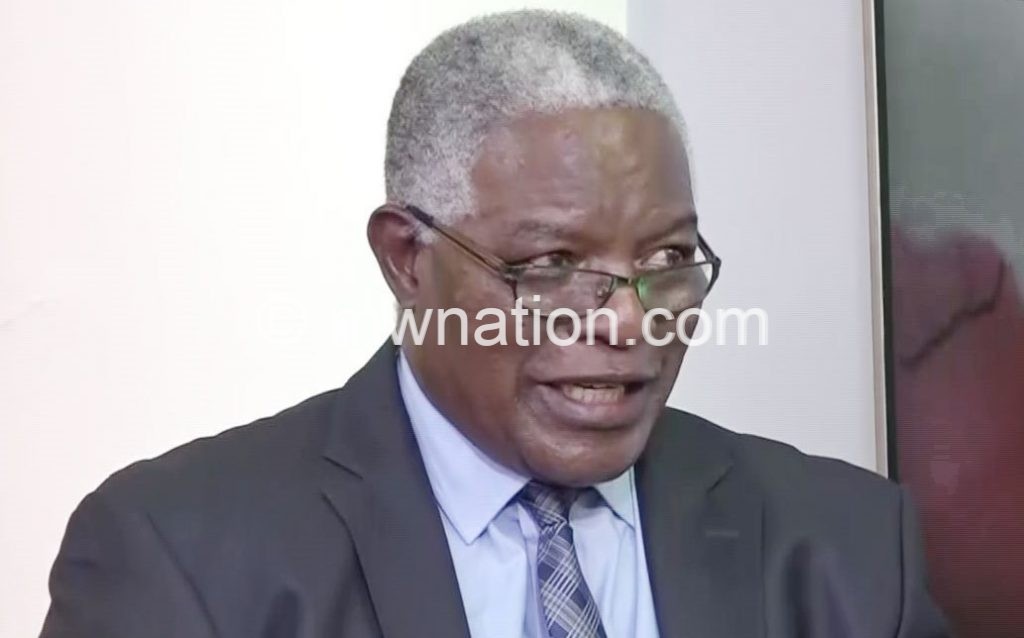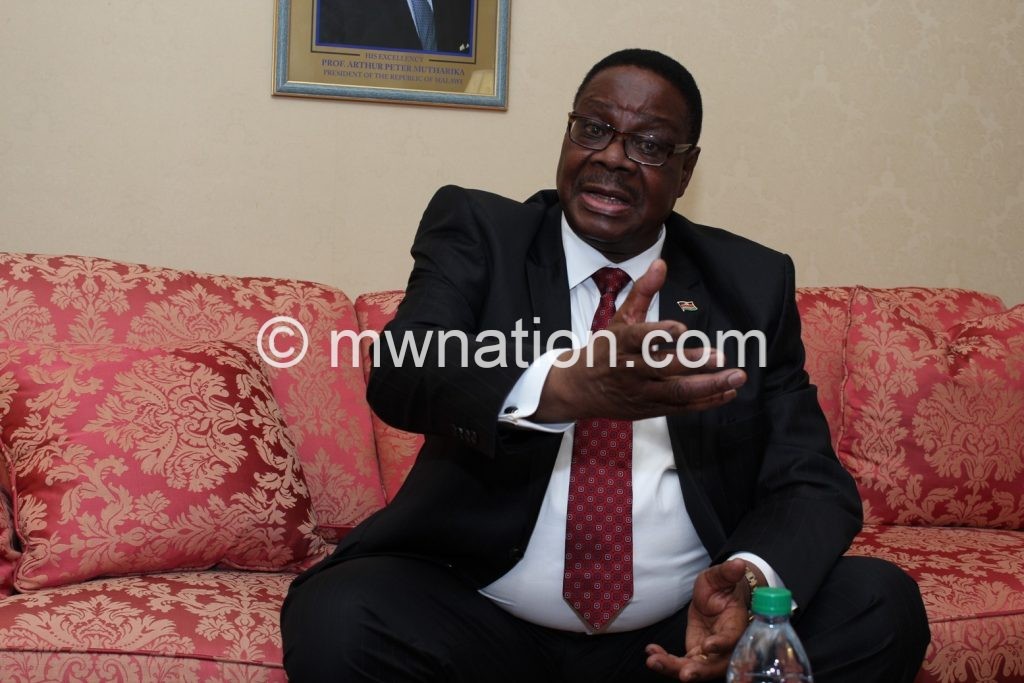Covid-19 distrurbs DPP convention
As the Democratic Progressive Party (DPP) braces for its elective national convention for its top job it should deliberately draw contestants from all regions or risk being reduced to a regional party, analysts have warned.
Three political analysts we talked to, in separate interviews this week, observed that the trend so far in the party where all six people who have expressed interest to contest for the position of party president are from the Southern Region—with five of them from the Lhomwe belt—could harm the party.

The six DPP members are former Cabinet ministers Kondwani Nankhumwa, Joseph Mwanamvekha, George Chaponda, former central bank governor Dalitso Kabambe—all from the Lhomwe belt—another former Cabinet minister Bright Msaka from Machinga and Benedict Mbewe.
Two other names—former Cabinet ministers and serving members of Parliament (MPs) Ben Phiri and Charles Mchacha, both from the Lhomwe belt—also emerged but they have distanced themselves from the race whose winner will also be the party’s torch-bearer in the 2025 Presidential Elections.
So far, the campaign for the party’s highest position to be contested at a yet-to-be-announced date has not attracted any party member or any individual from the Centre or North.
The party’s jailed vice-president for the Centre, Uladi Mussa, had before he was convicted and sentenced to five years imprisonment on corruption charges last year, expressed intention to compete in the race.

DPP spokesperson Brown Mpinganjira said, in an interview on Tuesday, in view of the increasing cases of the Covid-19 pandemic, Malawians should forget about the party holding a convention anytime soon.
He said, according to the party’s constitution, the convention is supposed to be conducted after every five years, meaning that the next convention will come in 2023.
“It is not possible to come up with any date right now… It would be uncalled for to call for a convention with this situation. Our convention takes over 2 000 delegates. So, we can’t do that and nobody will think about that until after Covid-19.
“Again, our constitution is very clear that we will have a convention once every five years and the last we had was in 2018, so the next one is in 2023. So, with the two scenarios, it is impossible to hold a convention in the near future,” he said.
But despite Mpinganjira’s statement, some aspiring candidates have in the past two months been criss-crossing the country wooing members of the party to vote for them at the convention.
While the party has defended the issue of having candidates from one region, three political analysts have cautioned the blue camp to “tread carefully and recast” before electing a new leader to avoid losing its national outlook.
University of Malawi (Unima) Chancellor College-based political scientist Mustapha Hussein observed the party risks complete ‘demise’ if it does not strategically reorganise itself.
Hussein said a party of DPP class was expected to have a national outlook by not allowing the leadership to be restricted and clustered in a particular region, districts or ethnic grouping.
“[The party should] reflect upon this because it will eventually become a weakness on it as it will restrict its support base. So, as they prepare for the convention, the leadership needs to rethink and encourage contenders from other regions to join the race,” he said.
The political analyst cited the party’s vice-president for the North Goodall Gondwe, and several other “very loyal members of DPP” from other regions who he said, could be persuaded to contest for the party to be seen to have a national outlook.
Another Unima political scientist Master Dicks Mfune said it was high time DPP followers and Malawians accepted the reality that the party has its biggest support base in the Lhomwe belt and is also largely controlled by people from this belt.
Mfune observed that as such the ethnic grouping is not ready to let the party go elsewhere.
He said: “As a result, this approach, if not swiftly corrected and deliberate strategies put in place, will greatly harm the popularity of the party. The numbers will start dwindling as people from other regions will ultimately withdraw their support on the basis that the leadership always comes from one area.”
“For the sake of transformation they need to deliberately raise other people from other regions if they are to regain power and get back to government one day.”
George Phiri, a political scientist from University of Livingstonia, blamed DPP’s president Peter Mutharika, arguing it was his failure to put in place a proper succession plan that has created the current problem.
He alleged that during the six years he was in power, Mutharika turned the party into an ethnic grouping, without regard to other merits and abilities of people from other regions and districts.
“Unfortunately, this is not only a problem for the DPP but many other political parties in Malawi. Unlike his brother Bingu, Peter did not have an agenda of nationalising the party. That is why we see dominance of contestants from one area—the Lhomwe belt—because that is what Peter preached,” alleged Phiri.
He also agreed with Mfune in his observation that the popularity of the DPP, including among its members, will decline if the current trend is not reversed because DPP will not be appreciated as a national party , but a regional bloc.
But, in an interview on Wednesday, Gondwe defended the domination of candidates from one area, arguing “the scenario is true of all other political parties, including the MCP [Malawi Congress Party] whose candidates are only from the Centre”.
However, the long-time finance minister said the supremacy of one area was because of the population of the area that supports the party.
“For instance, in our case in the North, even if we may want a candidate, we don’t have much chance [to succeed], probably that’s why people are not coming up from the region to contest.
“Even if we try to have strategies in place and encourage potential candidates from other regions, we will still not have the numbers,” Gondwe explained.
He brushed off notion that domination of candidates from one region would affect the popularity of the party, arguing: “Just as the situation is in other parties, we will not be affected because politics in general in Malawi depends on how many people you have in a particular area or region. Unless that changes we are destined to fail all the time.”
The DPP has been sailing in troubled waters since it lost the June 23 2020 fresh presidential election with one faction calling for an urgent elective national convention while the other has insisted the party is not yet ready for the event.
After losing the June 23 2020 court-ordered presidential election, Mutharika announced he wants to step aside as party president and since then he has confined himself to his retirement home in Mangochi.
The party’s National Executive Committee (NEC) in September last year appointed a functional review committee to recommend modalities that would steer the party to and during the elective national convention.





